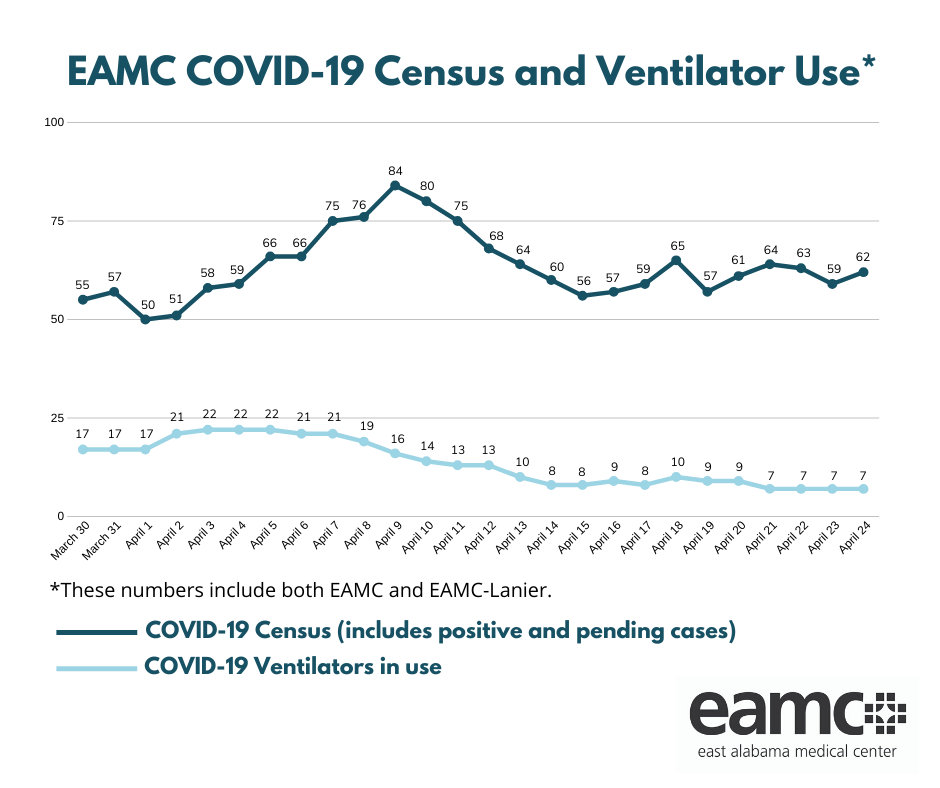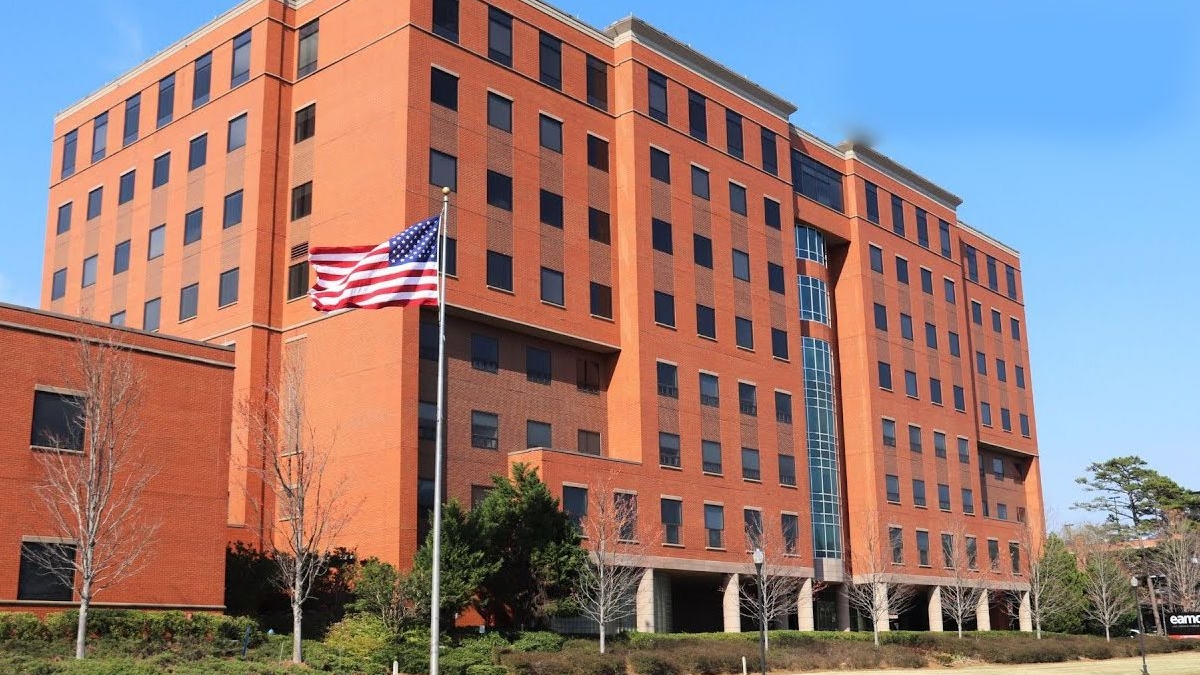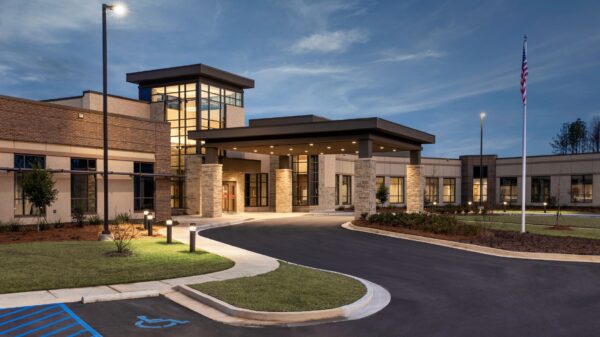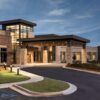East Alabama Medical Center is continuing to urge residents to stay at home as the number of patients it is treating in the hospital for COVID-19 has been rising again after a brief decline before Easter. The hospital in Opelika, Alabama, has been near the epicenter of a major COVID-19 outbreak in Lee, Chambers and Tallapoosa counties near the Georgia border.
The hospital says it is treating 62 patients with confirmed or pending cases of COVID-19. Of those, seven are on ventilators. It has successfully treated and discharged at least 78 patients who have tested positive for COVID-19.
EAMC has asked the community to social distance since the last week of February, almost two months ago, before Lee and Chambers county saw significant outbreaks begin in mid-March. Since confirmed cases began to rise rapidly in late March, Chambers County has had the highest number of cases per capita in the state.
At least 52 people have died from COVID-19 in Lee, Chambers and Tallapoosa counties since the outbreak began.
{{CODE1}}
EAMC admitted its first patient with COVID-19 on March 16. By April 9, the hospital had 84 positive or pending cases. The number of COVID-19 patients the hospital saw in early April required the hospital to move critically ill COVID-19 patients into a second dedicated intensive care unit.
“At the time, we did not know how much worse it was going to get, but now we believe that the week of April 5-12 was our peak for COVID-19 hospitalizations,” said Dr. Michael Roberts, EAMC’s chief of staff. “Unfortunately, COVID-19 does not leave a community the same way it enters. The number of COVID-19 patients at EAMC is expected to ebb and flow over the next few months. Temporary increases in patients may follow events like Easter, when people gather in larger numbers. We expect to have COVID-19 cases at EAMC for some time, and though we hope to see those numbers gradually decline, it will not be as fast as any of us wish.”
After a five-day decline in cases just before Easter, EAMC said Friday that it has seen eight straight days where the number of hospitalized cases have been above that low mark on April 15.

“With talk of ‘re-opening’ in Alabama, the concern is there a risk of a second wave, and perhaps even a new peak, if the social distancing and hand hygiene guidelines are not followed closely,” the hospital said in a statement.
Speaking to APR earlier this week, Alabama Hospital Association President Donald Williamson and UAB infectious diseases expert Jodie Dionne-Odom urged caution and restraint as discussions abound about lifting the state’s stay-at-home order and relaxing other restrictions on the economy in the days and weeks ahead.
Gov. Kay Ivey has said she plans to keep her shelter-in-place order in effect until at least April 30.
“Social distancing has helped tremendously, and at our peak, we were very close to surpassing our capacity,” said Dr. Ricardo Maldonado, EAMC’s infectious disease specialist. “Doing the wrong things like church services or other mass gatherings will bring the number of cases up again. COVID-19 does not appear to cause serious infections in most healthy and young individuals, but if the young and healthy begin to stop social distancing, they can pass it on to those at risk for serious infections. It is critical to remember that this is not people as individuals, but about our community, especially the ones who are vulnerable.”
There has been a lot of good news out of East Alabama, though. EAMC reported Friday that it has seen a dramatic increase in the number of patients on ventilators, partly because doctors there have learned how to intervene earlier.
“As this pandemic has evolved, we have become more accustomed to recognizing the early symptoms of COVID-19, and we have more of an opportunity to make adjustments which may head off severe respiratory failure,” Roberts said. “You have to remember that 6 weeks ago, no physician on our staff (or in our state, for that matter) had ever cared for a patient with COVID-19. We are all highly motivated and we are learning every day. We have continued to make adjustments to our management strategies for COVID-19 patients based on our experiences here as well as information we receive from our colleagues around the country. This has also allowed more patients to recover from COVID-19 without requiring ventilators.”
Amy Brandon, director of the Emergency Department at EAMC, explained that the virus is still circulating in the community even with social-distancing and stay-at-home orders in effect. It has not gone away.
“We have certainly seen more surges of COVID-19 symptoms in the ED since Easter,” Brandon said. “This is an indication that the virus continues to spread in our community, despite precautionary measures in place by government leaders and healthcare officials. I urge everyone to not underestimate the seriousness of this illness and the devastating effects we have seen among the patients and families we care for.”
“The most important things for community members to do is obey Governor Kay Ivey’s stay-at-home order until April 30,” said Dr. Steven Presley, another doctor at EAMC. “We will see another spike in cases if people don’t obey these guidelines. If we want this to end soon, we must comply now.”
Guidelines that will save lives are simple, according to EAMC:
- Shelter in place at home. That means staying at home with immediate family members only and not leaving your home except for essential activities such as food, medical care, or work.
- Maintain at least a 6-foot distance from other people at all times, even when outdoors.
- Be vigilant about washing your hands. Wash them frequently throughout the day and for at least 20 seconds each time.
- Disinfect high-touch surfaces, including cell phones, frequently
- If you leave your house, wear a cloth mask to protect yourself and protect others.























































